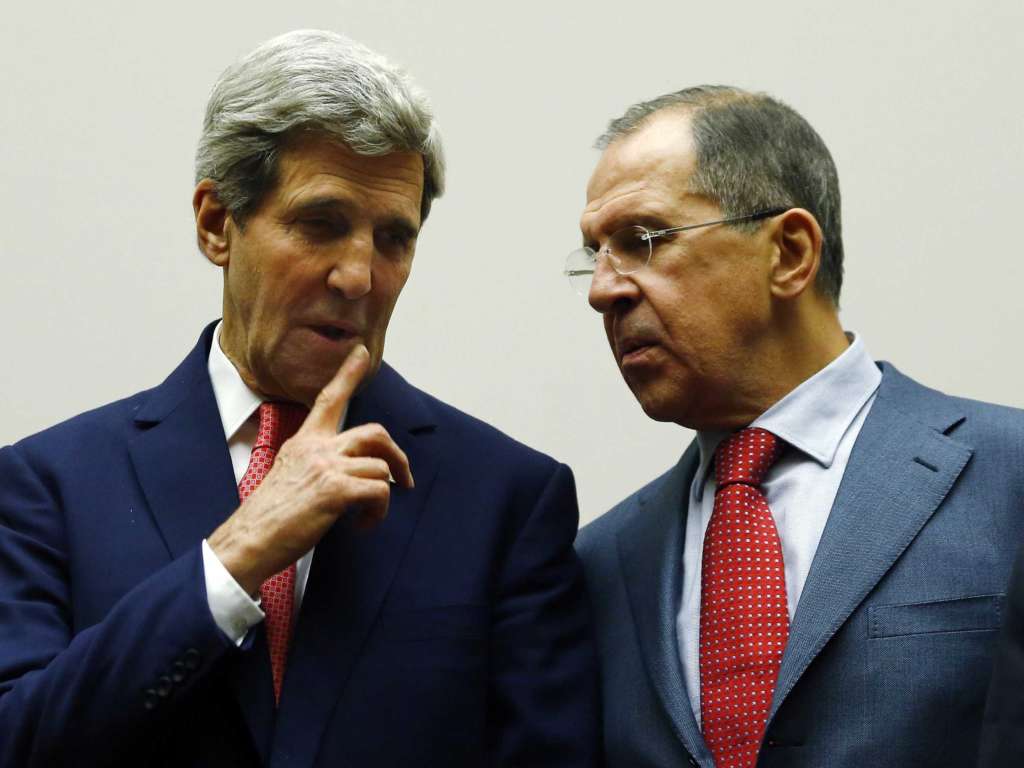Washington, New York, Moscow: The White House threatened on Thursday to stop cooperation with Russia over the Syrian crisis, if Moscow fails to force Syrian head of regime Bashar al-Assad to allow the delivery of humanitarian aid to besieged areas.
The White House also blamed the Syrian regime for preventing humanitarian aid from reaching high-need areas of Syria.
White House spokesman Josh Earnest said that Assad’s regime was the main obstacle to promoting access to aid by Syrian residents.
He added that Russia should commit to the deal agreed with the U.S. and impose its influence on Assad.
Earnest warned that the U.S. would stop its military cooperation with Russia, if the latter fails to force Assad’s regime to commit to the ceasefire and allow delivery of humanitarian aid.
The White House spokesman was echoing the call of U.N. Special Envoy for Syria, Staffan de Mistura, who blamed Assad for the continuous delay in issuing permits to deliver U.N. aid across Syria.
De Mistura stressed that the Syrian regime was the main obstacle to aid delivery.
In comments on Thursday, the envoy said “we have a problem on getting humanitarian aid into Syria”, despite the U.S.-Russia brokered deal.
De Mistura added that the Syrian regime has not provided needed “facilitation letters” to allow for the start of U.N.-led aid convoys expected under the new cease-fire agreement.
He said 40 aid trucks are ready to move and his priority is getting aid into the embattled rebel-held neighborhoods of the northern Syrian city of Aleppo.
A U.S.-Russia-brokered cease-fire in Syria that began on Monday is intended to help stage the ground for peace talks to end Syria’s devastating civil war, now in its sixth year.
The deal was forged between Russian Foreign Affairs Minister Sergei Lavrov and U.S. Secretary of State John Kerry in Geneva earlier this month.
Several previously negotiated cease-fires and efforts to hold the peace talks have stalled.
The U.N. humanitarian adviser, Jan Egeland, said both the rebels and the regime were responsible for delaying aid deliveries to Aleppo.
“The reason we’re not in eastern Aleppo has again been a combination of very difficult and detailed discussions around security monitoring and passage of roadblocks, which is both opposition and government,” he said on Thursday.
The Russian Foreign Affairs Ministry reiterated that a number of armed opposition groups in Syria have refused to abide by the provisions of the ceasefire that came into force on September 12.
The ministry said the armed factions’ refusal to implement the ceasefire was an “outrageous challenge to the Russian-U.S. efforts to consolidate the cessation of hostilities, facilitate the resolution of humanitarian problems and create conditions for launching an inclusive intra-Syrian political process.”
Meanwhile, Russia’s deputy foreign minister Gennady Gatilov said intra-Syrian talks could resume at the end of September, according to media reports.
Gatilov was quoted as saying that a new round of talks between Syria’s opposition and regime could take place at the end of this month.
Gatilov added that the Russian-U.S. executive center for cooperation would be launched in Geneva in the few coming days.
Foreign Ministry Spokesperson Maria Zakharova said the U.S. was “skeptical about Russia’s willingness to comply with the agreements.”
“They regard the ceasefire as a test for Russia’s reputation,” she said during the weekly press briefing.
“We regard such statements, made in a situation where Syria’s years-long conflict has not been resolved yet and all international efforts are aimed at achieving a peaceful settlement, as illogical and counterproductive,” Zakharova said.
